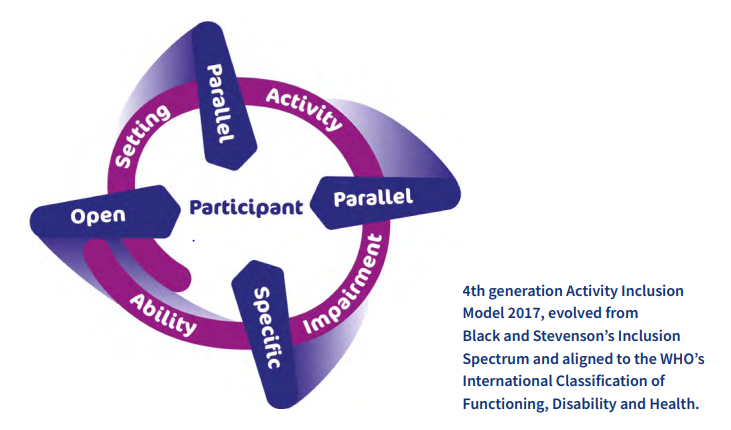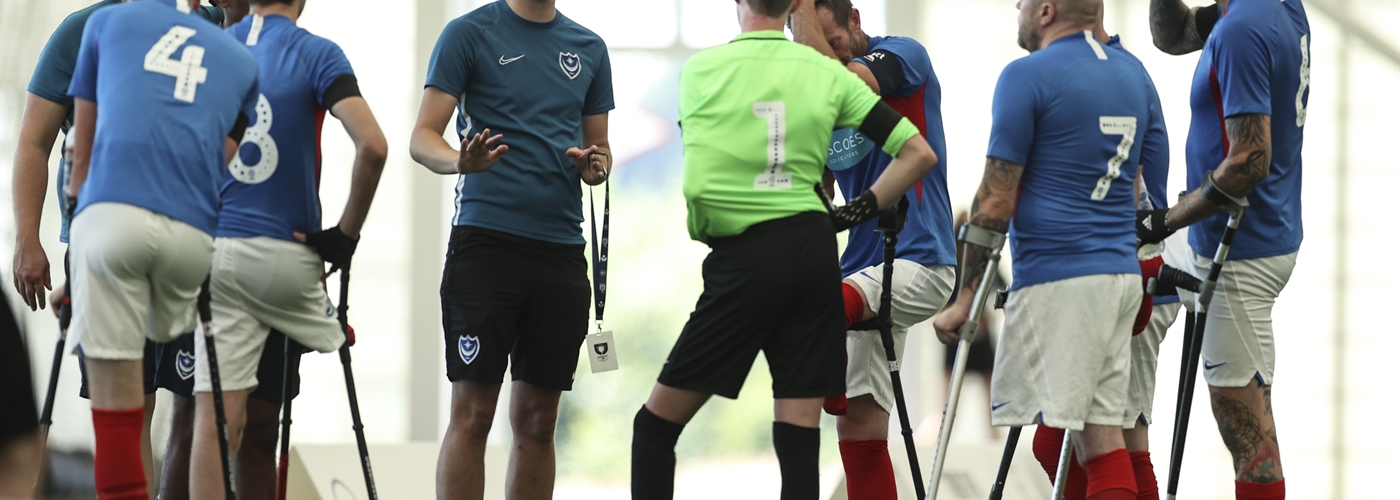As a mentor supporting people who coach disabled players, I have found myself using the phrase “It’s JUST coaching” more and more recently.
I need to clarify though – I don’t mean ‘just coaching’ in the sense of ‘merely’ coaching. Anyone who helps in any way is doing their bit for others.
What I mean is that some people are apprehensive about coaching disabled people, without realising that they already have many of the tools to deliver inclusive, enjoyable, and challenging practices. Mentoring is often just helping them recognise their strengths and reflect on how simple adaptions can include players with different needs. (Don’t worry - it’s just coaching!)
The FA’s Football Your Way - Three Step Challenge has tips on using ‘STEP’ (Youth Sports Trust, 2022) (considering Space, Task, Equipment, People & Safety) to be more inclusive and change the level of challenge. With a little knowledge of someone’s needs, this simple strategy will help any coach adapt their practices more effectively.
For me, the best way of getting this knowledge is to ask the player! E.g. what colours they can distinguish, how far away the ball can be seen, and are simple written instructions helpful?
Another useful coaching tool is the activity inclusion model below (fourth generation: the activity inclusion model april 2017 AIM evolved from Black & Stevenson’s inclusion spectrum) which supports a player-centered approach. It helps you think about what players can do instead of what they can’t do, and helps you make sessions appropriate to players’ different motivations and needs. AIM encourages you to consider the player's ability, the activity, the player's impairment and the setting when designing you practice. It provides 4 different practice types:
Open practice - This type of activity is simple – everyone does the same thing. Players can work at their own level, but nothing is changed, adapted or modified. Open practices also give you time to assess your players – maybe during a warm-up activity – to work out how you can meet their individual needs.
Modified practice - In this approach, you design one main activity for your group. You then adapt this activity to meet the needs of different individuals. Using STEP is a great way to do this.
Parallel practice - Everyone takes part in the same type of activity, but players are organised into groups according to ability and the activity is set at a level to match this.
Specific practice - Here you create activities adjusted specifically to the needs of certain groups. This is reflected in the impairment-specific pathway, for example, blind football.

We don’t have to be an expert in every disability or condition, we just need to find out a bit more about the person in front of us who has come along and trusts us to help them play the game.
I find that once coaches realise this they grow in confidence.
Things that make good mainstream coaches (e.g. giving information in small chunks) also make good inclusive coaches. You might have some players who are deaf, need a frame, have a learning difficulty, or whose vision isn’t the same as everyone else, but once we allow for this
(and by the way one definition of ‘just’ is ‘fair’)
‘It’s JUST coaching!’
From coaches who have received some support recently:
‘Thanks for your advice, it explained a lot about how we can understand and adapt for our player with autism’
‘I feel like I understand better how things are for this player and how amazing they actually do, playing football with their friends… it was nice to give them a positive outlook on football’
'I didn’t realise how such simple changes to the sessions I was delivering could make it so easy to include everyone while still challenging them’
To find out more about these coaching tools and being a more inclusive coach’ check out the UK Coaching / Activity Alliance Inclusive Activity Programme.
Here is also an athletics-specific inclusion spectrum guide.
If you have any questions about anything in this blog, please post them below.



-

Lee Cooper
-
Cancel
-
Vote Up
0
Vote Down
-
-
Sign in to reply
-
More
-
Cancel
Comment-

Lee Cooper
-
Cancel
-
Vote Up
0
Vote Down
-
-
Sign in to reply
-
More
-
Cancel
Children